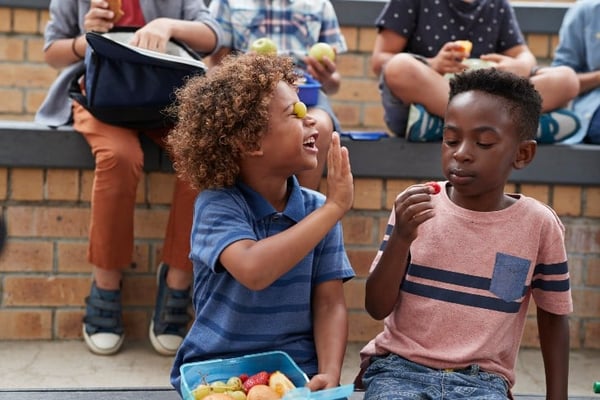Lighten your kid's footprint
Sometimes tackling a big problem can feel overwhelming, especially when you bear the responsibility of your children's footprint as well as your own. However, breaking tasks down into easy-to-manage chunks can be the best way to approach the subject and take a positive step forward to fighting climate change.
Contrary to popular opinion, leading a sustainably conscious life doesn't have to be mind-boggling, boring or all-together too different from the one you live now; it only takes a few small changes to make an impact on the planet.
The more of us that make a change, the bigger impact it will have. So do your part and teach your kids how to lighten their carbon footprint because, when it comes to your child, teaching them eco-friendly habits from a young age, such as re-using or sharing toys, wearing hand-me-downs or getting back to nature, can be the best things you pass on to them. These changes can be highly cost-effective for you too, so it's a win-win all round.


OUR EXPERT
We've worked closely with speaker, strategist and sustainability expert, Dan Burgess, who works with brands and communities to promote awareness of our planet and how we can tread more lightly upon it.
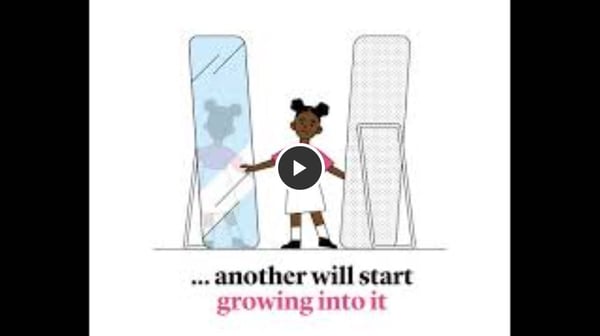
Back to nature
Even if your home has the tiniest garden, or no garden at all, you can still introduce your children to the natural world simply and cheaply. Getting outside on a walk in local parks and commons will immediately give your children a sense of connection to nature. Night-time walks and stargazing can bring a real sense of wonder and spark imagination. And a rummage through the undergrowth could unearth a fascination for the creepiest of crawlies. Back home, stop mowing a part of your lawn and let it re-wild a little. That will attract insects, which will attract birds from pigeons to parakeets within easy watching distance. A birdfeeder on a balcony will have a similar effect. And a few packets of seeds, plus a pot of earth, could see your kids cultivating their own windowsill garden.
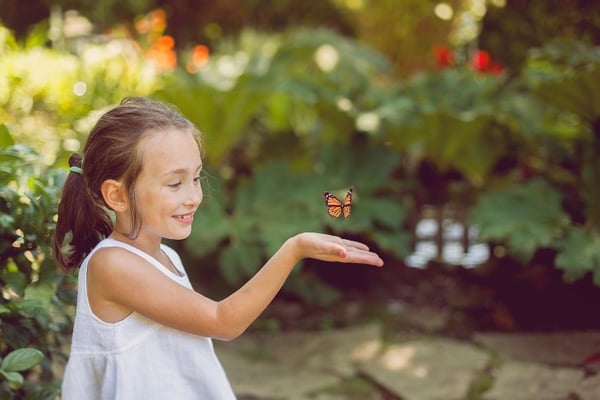
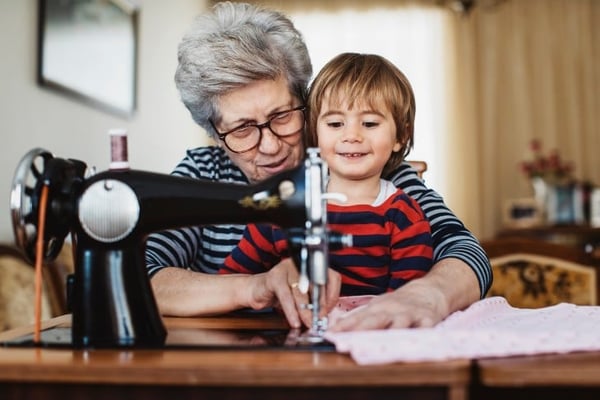
Care, repair and re-wear
Extending the life of items of clothing rather than buying new could make a very real impact on your family footprint. And your family purse. So, opting for slow fashion rather than fast fashion, investing in a needle and thread and sewing patches on threadbare knees or remaking a new t-shirt from two old ones, could be well worth your while. As well as boasting benefits such as saving money and the environment, own-made clothes also create memories, hold sentimental value and stay in the family as nice to haves.
Share and share alike
New toys can be expensive as well as wasteful if your child is likely to lose interest after a short time. That’s probably why toy renting and sharing has become more popular in recent times. Renting toys from a specialist company, sharing with a group of like-minded parents, or even using one of a growing number of local toy libraries doesn’t just save you money, it also gives your child access to a never-ending world of new playthings. If you do buy new toys, remember that there are a growing number of manufacturers of durable toys made of wood and other sustainable materials.
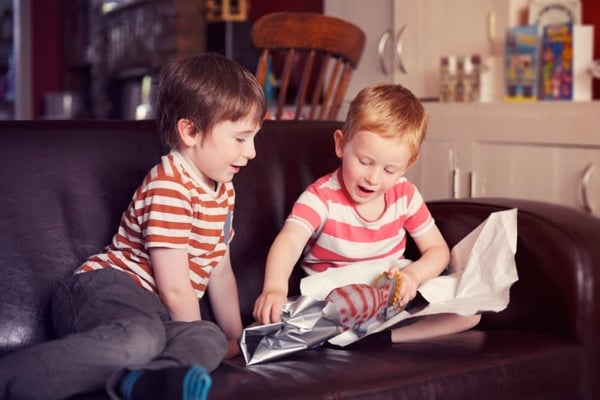
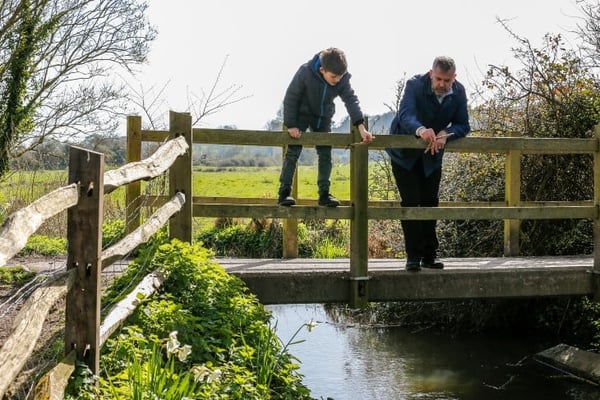
Sticks and stones
When it comes to toys, simple can be best for young children. For instance, did you know that the most popular toy for children is a stick? And no wonder, they’re very versatile, from a game of Pooh sticks in a stream to something to throw, catch or build with. And what better bonding experience between parents and children can there be than teaching them to skim stones across a pond? The Wild Network has many other ideas for how to have fun with nature.
Upcycle and hand down
When your child has finished with a piece of clothing, or simply outgrown it, why throw it away when you can pass it on. That might be as a hand-me-down to a younger child or as a donation to a charity shop. Alternatively, if its life as an article of clothing is over, you can always upcycle – old t-shirts can make good dusters, for example, or even the raw material for a craft project for your children. It’s worth remembering that when you throw something away, there’s not really any such thing as ‘away’ – it just becomes someone else’s problem.
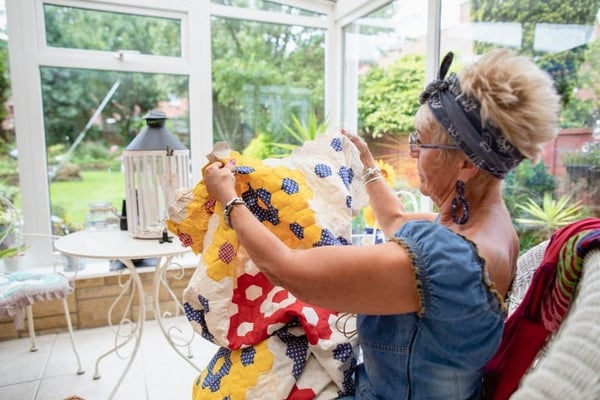
See more tips on being a planet-friendly parent
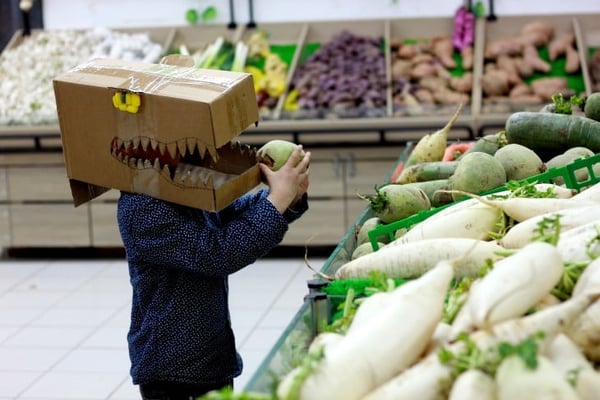
Lighten your household's footprint
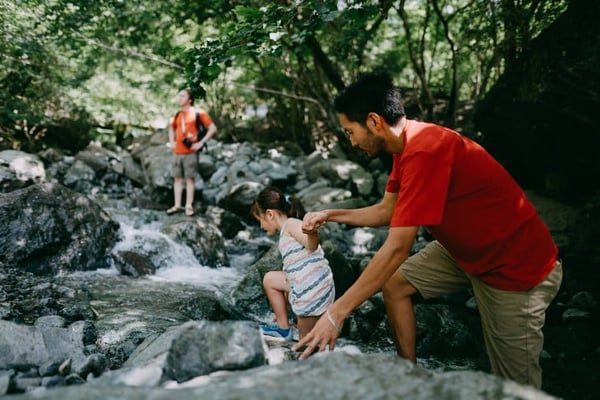
Teaching your kids how to make a difference
